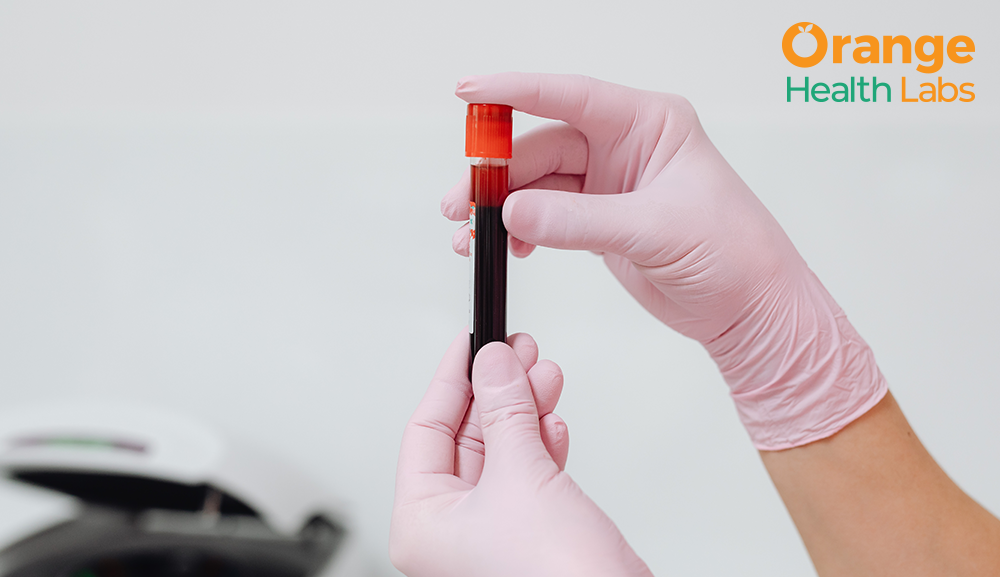Search for tests or checkups
SupportUnlocking Heart Health: The Power of Complete Health Checkups

Heart diseases are the top cause of death worldwide, claiming around 17.9 million lives annually. The projected annual deaths from heart disease in India had increased from 2.26 million in 1990 to 4.77 million in 2020. In rural areas of India, the prevalence of coronary heart disease has ranged from 1.6% to 7.4%, while in urban areas it has varied from 1% to 13.2% over the past few decades. To safeguard your heart and maintain its well-being, it is important to assess your heart health, make healthy choices, and adopt preventive measures.
Research has found that people who go for complete body check ups have lower risk factors for heart disease, and this effect lasts for six years. This emphasizes the significance of such checkups, including blood count, blood sugar levels, and lipid profile assessments. This comprehensive approach enables early detection and intervention for potential health issues.
Understanding Heart Health Risks
Anyone can get a heart disease, however, some factors like an unhealthy lifestyle and adverse habits make you more susceptible to heart diseases. Knowing about the things that can damage your heart gives you the power to make changes and improve your health. Common factors that potentially affect your heart health are:
- Smoking: Tobacco consumption raises the risk of heart disease and heart attack. Smoking harms the heart and blood vessels, increasing the chances of conditions like atherosclerosis and heart attacks.
- High Blood Pressure: High blood pressure is a significant risk for heart disease. It occurs when the force of blood against your arteries is too high. If not controlled, this pressure can harm your heart and other vital organs.
- High Cholesterol: When we consume more cholesterol than our body needs, the excess can accumulate in the walls of arteries, including those in the heart. This causes the arteries to narrow, reducing blood flow to the heart and increasing the risk of getting heart disease.
- Diabetes: Diabetes makes sugar levels rise in the blood. Individuals with diabetes have a higher risk of heart disease and associated mortality as compared to those without diabetes.
- Being Overweight or Obese: Obesity is connected to having higher levels of "bad" cholesterol and triglycerides and lower levels of "good" cholesterol. This imbalance can put your heart at a greater risk of damage.
Even today, a large number of people are living with unnoticed health problems that greatly raise their chances of having heart or circulatory issues. Finding heart disease early and timely diagnosis of it is crucial for preventing further harm to patients and potentially saving lives. Detecting it early also gives doctors more time to find treatments, manage symptoms, and prevent other health problems.
The role of health checkups
Periodic health assessments provide a comprehensive assessment of your overall health and vital organs through various tests assessing factors like blood pressure, cholesterol, and heart function. Detecting potential issues early allows for easier treatment, particularly for chronic diseases like heart disease, promoting a longer and healthier life. They also provide opportunities for lifestyle improvements and the development of personalized healthcare plans tailored to individual needs and medical history.
Book a full body checkup in your city: Full Body Checkup in Noida | Full Body Checkup in Bangalore | Full Body Checkup in Mumbai | Full Body Checkup in Hyderabad | Full Body Checkup in Gurgaon | Full Body Checkup in Faridabad | Full Body Checkup in Delhi
Components encompassed within full body examinations relevant to cardiovascular wellness.
Your doctor can diagnose heart disease by examining your body, listening to your symptoms, reviewing your family's health history, and conducting diagnostic tests. Below are explanations for some of these tests and their normal ranges:
- Blood tests: If your heart is damaged, your body releases certain substances into your blood known as cardiac markers. Blood tests can detect cardiac markers, such as cardiac troponin, indicating heart damage and also aiding in diagnosing if you’re at risk of heart attack.
- Cholesterol levels: Since high cholesterol is one of the risk factors for heart disease, your cholesterol levels must be below 200 mg/dL. A person is at high risk for heart disease if their total cholesterol level exceeds 240 mg/dL.
- Blood glucose levels: A typical fasting blood glucose level falls within the range of 70 mg/dL to 100 mg/dL. Blood sugar levels above 170 mg/dL, raise the risk of heart disease greatly and can also cause heart failure.
- Blood pressure: Blood pressure readings below 120/80 mm Hg are considered normal. Elevated blood pressure can result in hypertension which can ultimately affect the heart.
- Electrocardiogram: An echocardiogram, a common test utilizing ultrasound, provides images of the heart to assess valve and chamber function as well as blood pumping strength.
- Stress test: This test involves injecting a tracer into your bloodstream to assess blood flow and heart function at rest and during physical activity, helping your doctor identify potential heart muscle damage.
Importance of Regular checkups for Heart Health
Consistent monitoring and regular checkups are vital for maintaining good health and detecting any potential heart issues early. By staying proactive with checkups, individuals can catch heart problems before they become serious and ensure timely intervention. Most of the tests required to keep your heart healthy are not invasive and can be easily done without much preparation. These simple tests done regularly aid in providing valuable information about your heart health and help protect you from future issues, especially if you have risk factors or a family history of heart disease.Even though people believe they don't need to see a doctor until they're in their thirties, forties, or even later, that's not true. It's recommended to start getting regular checkups for heart health at the age of 20 as they help detect any heart issues early on, before they become serious. These checkups should be repeated every 3 years.
Stressed about how to get started? Orange Health Labs is here at your service.
Orange Health Labs has delivered more than 10,00,000 seamless tests and is fully trusted by doctors. Our heart checkup tests include all essential tests assessing overall health, including LFT test and KFT test. Additionally, it includes specialized cardiac tests such as lipid profiles, cardiac risk markers, and other important parameters that help in identifying potential risks early on and enable proactive measures to prevent heart diseases and related complications. Our at-home sample collection ensures a comfortable and hassle-free experience for you. So, don’t wait any further, book your tests with Orange Health Labs today!
Book a heart health checkup in your city: Heart Checkup Package in Hyderabad | Heart Checkup Package in Bangalore | Heart Checkup Package in Mumbai | Heart Checkup Package in Noida | Heart Checkup Package in Gurgaon | Heart Checkup Package in Faridabad | Heart Checkup Package in Delhi
Heart diseases claim millions of lives each year, reminding us of the importance of proactive heart care. Understanding common risk factors like smoking, high blood pressure, and high cholesterol allows us to take control of our heart health. With symptoms like chest pain and shortness of breath as red flags, we are reminded to listen to our bodies and seek care promptly.Beginning regular checkups at age 20 and relying on comprehensive packages like those from Orange Health Labs not only reduces heart disease risks but also offers early detection and management, providing reassurance and support for your heart health journey. Prioritizing regular screenings empowers you to identify and address potential issues early, ensuring a healthier future with peace of mind.

What Is Blood Routine Examination & What Are the Benefits of Regular Blood Tests?

What is Creatinine Serum in Blood Test? Understanding Its Significance
